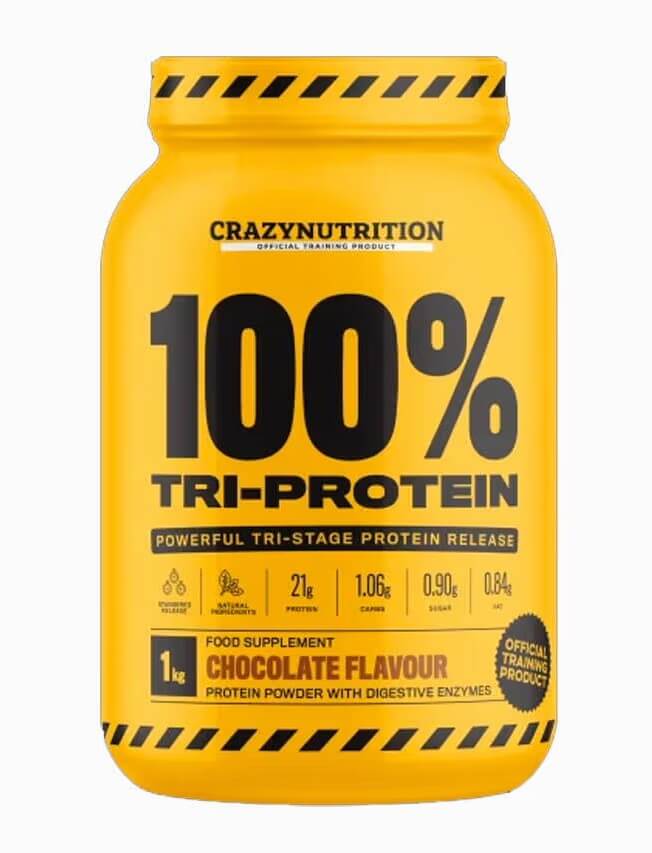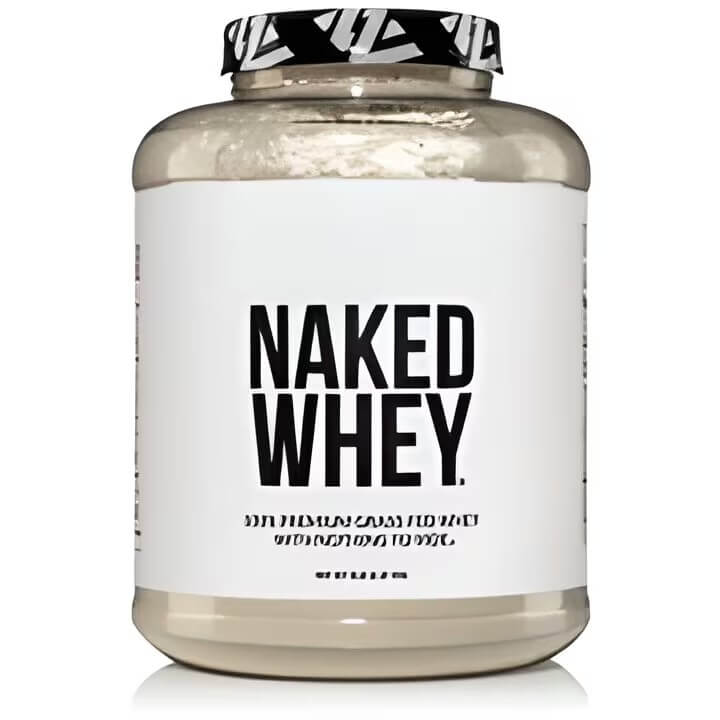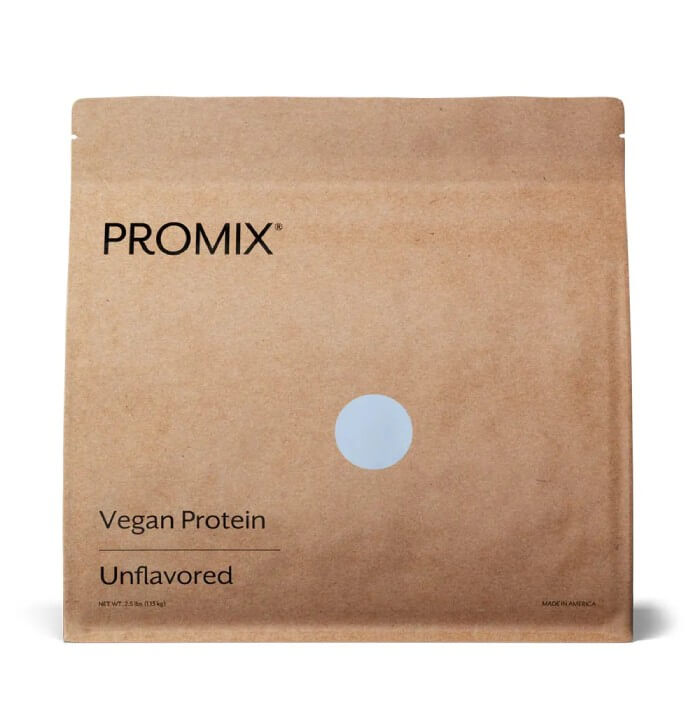How Long Does It Take For Protein To Digest?
Author:
Unlock your full potential by engaging with our experts and community! Have questions about your fitness journey or looking for expert advice on weightlifting techniques? Don’t hesitate — leave a comment below and Oleksandr Maksymenko will provide a personalized answer and insights to help you reach your goals.
Torokhtiy is reader-supported. Some links are affiliate links, and we may earn a commission at no extra cost to you. See our disclosure page for details.
How long does it take for protein to digest? This is a question that has been circulating around the health and fitness industry for decades. For this reason, in this article we have put together a short discussion, highlighting factors that impact the rate of protein digestion.
The speed of digestion is influenced by many factors: individual digestion time, the form and source of protein, the amount of protein per serving, the presence of carbohydrates, fats, fiber, overall meal volume etc. You can choose the type of protein that is best suited for specific scenarios.

Factors That Influence Protein Digestion Rate
There are many factors that affect the digestion of protein and the rate of absorption of amino acids. First of all, the speed of digestion varies among individuals.
The rate of digestion is also affected by whether we eat on an empty stomach or whether we have already had one or more meals that day. What else affects the time to digest protein? Let’s briefly consider the points.
1. Protein Form and Macronutrients Breakdown
In general, solid high-protein foods take longer to digest than a liquid protein shake. The matter is both the form of the product itself (a solid piece of beef VS protein powder shake) and the presence of fats that slow down the digestive processes.
Consider plant sources of protein, for example, lentils, which contain not just protein, but also carbohydrates and a lot of fiber. All this slows down the digestion of the protein itself.
Let’s say that you consumed a lean chicken breast grilled in olive oil, with a side of rice and vegetables. The dietary fat, carbohydrates, and fiber composition of this meal would change the digestion rate, compared to the chicken breast solely.
How long does whey protein take to digest? It can be digested at different speeds, depending on the composition of the shake. Protein powder mixed only with water will be digested faster than protein mixed with milk.
The percentage of milk fat will also may affect the rate of digestion. If you add a banana to the mix, the rate of protein digestion from the shake will slow down even more due to the presence of carbohydrates and fiber.
2. Amount of Protein and Total Food Volume
Protein digestion time also depends on the amount of protein in a serving. A larger portion of protein will be digested longer.
How long does it take to digest protein shake? Given that whey protein isolate is digested at a rate of approximately 8-10 grams per hour, 20 grams will take 2-2.5 hours to digest, and 30 grams will take 3 to almost 4 hours.
And this is provided that you do not add anything else to the shake except water, and drink it on an empty stomach, because this is how the digestion rate of whey protein isolate was studied in most trials.
However, although taking protein shakes on an empty stomach makes the experiment less complicated, it is not an indicator of how protein is absorbed in real life when we take the shake in conditions where we have already eaten that day.
Also, the speed of digestion is affected by the volume and caloric content of the total meal. Back in the 50s and 60s of the last century, it was shown that the speed of gastric emptying is highly dependent on volume, composition, and caloric density of meal. The stomach of an average person is emptied by approximately 1-4 kcal per minute.
And we are talking only about the emptying of the stomach. Let me remind you, most of the nutrients (including amino acids) are absorbed in the small intestine. The entire process of digesting meal in the stomach and small intestine can last about 6-8 hours!

3. Protein Source
Data on absorption rates of amino acids are very limited and only serve as approximates. However, we have some estimates for how long does it take to absorb protein from the following sources:
- Egg protein (cooked) – 2.8 g of protein / 1hr,
- Pea protein – 3.4 g / 1hr,
- Milk protein – 3.5 g / 1hr,
- Soy protein isolate – 3.9 g / 1hr,
- Casein – 6.1 g / 1hr,
- Whey isolate – 8-10 g / 1hr.
So while 20g of protein from whey protein isolate can take ~2-2.5 hours to digest, the same 20g of protein from an omelet may take approximately 7 hrs to fully digest. This is related to both the solid form of protein source and the presence of fat in the egg yolk.
Estimates of the rate of protein digestion from different sources and the entire process of digesting meals indicate that the importance of protein absorption rate is greatly overrated. For example, for lunch you ate a portion of peas, which contained 25 g of protein.
According to the above calculations, such a portion of protein will be absorbed in about 7 hours, and this is provided that you ate only peas.
So when you eat dinner 3 or 4 hours after lunch, your small intestine can still digest some of the protein from the previous meal. Thus, there is almost always a readily available supply of amino acids under real life conditions!

Slow Digesting vs. Fast Digesting Shakes
There is a generally accepted concept of “fast” and “slow” protein. When discussing this topic, whey protein and casein are compared. How are they different?
1. Digestion And Absorption Rates
Whey is considered a “fast-acting” and fast digesting proteins, as it is absorbed in the amount of 8-10 g per hour and provides quick availability of amino acids to spike muscle protein synthesis. In general whey protein best stimulates muscle protein synthesis.
On the other hand, casein is a “slow-acting” protein. It takes longer to digest, absorb, and metabolize, and provides flatter, but longer stimulation of muscle protein synthesis, and effectively counteracts protein breakdown.
As a rough estimate, 30g of whey protein can be digested in 3-4 hours, while 30g of casein as a slow digesting protein can be digested in about 5 hours. However, given that in real life we make protein shakes with the addition of milk, fruit, berries and even peanut butter, these time intervals can be significantly increased.
And there is still no clear answer whether whey protein or casein is significantly better for building muscle and improving body composition, especially in the context of getting needed daily amounts of high-quality protein from a variety of sources.
2. Scenarios Of Use
We can still use differences between “fast” and “slow” protein to choose the type that is best suited for specific scenarios.
The fast digesting protein could be advantageous where you want to drive to an “anabolic state” as soon as possible. This could be first thing in the morning or after a workout.
And because whey protein is on the list of fastest digesting proteins, it’s also a great choice for a pre-workout meal, especially if you don’t have much time before your training session.
On the other hand, casein is not an optimal choice for eating shortly before training, because it is ‘“slower” and more difficult to digest. By consuming casein shortly before your workout, you are more likely to experience stomach discomfort and nausea during your training session.
However, casein is a great option when you will have a long period without the opportunity to eat during the day. For example, before a meeting that will last many hours in a row.

Also, as a slow releasing protein casein has long been used before bed for sustained release of amino acids during sleep, although there is still no evidence that this has unique benefits over other sources of high-quality protein.
On the other hand, if you like this ritual and it helps you get the total amount of protein you need every day, there’s no reason not to continue it.
By the way, in order to use the advantages of both “fast” and “slow” protein, the best solution is to have them both in one shake (except for scenarios where a single type of protein is best).
To do this, you can use protein supplements that have a blend of whey protein and casein, or use products with milk protein concentrate or isolate, as it contains both whey protein and casein!
Recommended “Fast” + “Slow” Protein: Crazy Nutrition’s TRI-PROTEIN
Crazy Nutrition’s TRI-PROTEIN is one of the top products on the market that contains both “fast” whey protein and “slow” casein. One portion contains up to 24 grams of protein of the highest quality, as well as a complex of enzymes that will help better digestion.
This product is optimal for those who want to use all the advantages of both milk-based proteins! We recommend you try the chocolate flavor. It’s amazing!
Recommended “Fast” Protein: Naked Grass Fed Whey
It’s a great whey protein that packs 25 grams of protein per serving, including plenty of BCAAs. The unflavored version has only one ingredient – whey protein concentrate and nothing else! And this product is lab tested by a third party, namely Informed Choice!
Keep in mind that since this is a whey protein concentrate, it may not be suitable for people with severe lactose intolerance (whey protein isolate is a better choice).
Recommended “Slow” Vegan Protein: Promix Vegan Protein Powder
Promix is a vegan protein powder made from canadian yellow peas grown in the USA. Note that pea protein is one of the best vegan proteins! Promix Vegan has high iron content and is enriched with vitamin B12, which is a very important bonus for vegans.
FAQ
Can Your Body Digest More Than 30g Of Protein?
Our body is able to regulate the rate of protein absorption. It can slow down digestion in order to absorb all present protein.
For maximizing muscle protein synthesis, we can eat 0.4 g of protein per 1 kg of body weight per meal, and even up to 0.6 g/kg/meal for some older people. That is, for a man weighing 75 kg, the optimal amount of protein per meal can be in the range of 30-45g.
How Long Does Protein Stay In Your System After Eating?
Many factors affect this, so it is impossible to give a universal answer to such a question. In general, elevated muscle protein synthesis lasts 1-4 hours after a meal.
How Long Does 10g Of Protein Take To Digest?
It mainly depends on the form and source of protein, as well as the presence of other macronutrients, and the speed of digestion of a particular person. If you use whey protein on an empty stomach and mix it with just water, 10 grams of protein will be absorbed in about 60-90 minutes.
Conclusion
The rate of digestion and absorption of protein depends on a whole list of factors: the form and source of protein, the amount of protein in a serving, the total volume of food and the presence of carbohydrates, fats and fiber, as well as the speed of digestive processes in a particular person.
There are protein types and sources that are digested and absorbed more quickly than others. An example of a “fast” protein is whey protein, while a “slow” protein includes casein, pea protein, and protein found in unprocessed whole foods such as beef or chicken.
In the end, if you are interested in the end points (growth of muscle mass and strength, improving of body composition), don’t worry too much about the rate of protein absorption rate, and better focus on the consumption of a sufficient total amount of protein per day, which is recommended to be distributed over +/- 4 meals.
Please feel free to leave a comment or question regarding protein digestions.
Also read:
- What to Mix Protein Powder With
- How to Make Protein Shakes Taste Better
- How Much Does Protein Powder Cost
- Amino Acids vs Protein
- Can Protein Powder Make You Sick
- Does Protein Build Muscle Without Working Out
- How Many Protein Shakes a Day
- Difference Between Whey and Isolate
- Best Casein Protein for Weight Loss
- Muscle Recovery Supplements Guide
References:
- Digestion: How Long Does It Take? // Mayo Clinic: https://www.mayoclinic.org/digestive-system/expert-answers/faq-20058340
- A Review of Issues of Dietary Protein Intake in Humans // International Journal of Sport Nutrition and Exercise Metabolism: https://journals.humankinetics.com/view/journals/ijsnem/16/2/article-p129.xml?content=pdf
- How Much Protein Can the Body Use in a Single Meal for Muscle-Building? // Journal Of International Society Of Sport Nutrition: https://jissn.biomedcentral.com/articles/10.1186/s12970-018-0215-1
- Nutrition Recommendations for Bodybuilders in the Off-Season // National Library of Medicine: https://www.ncbi.nlm.nih.gov/pmc/articles/PMC6680710/
- International Society of Sports Nutrition Position Stand: Protein and Exercise // Journal Of International Society Of Sport Nutrition:
https://jissn.biomedcentral.com/articles/10.1186/s12970-017-0177-8 - Benefits and Risks of Using Supplements and Sports Foods // The Australian Sports Commission: https://www.ais.gov.au/nutrition/supplements/group_a#isolated_protein_supplement
- How Much Protein Can You Eat In One Sitting? // Examine: https://examine.com/articles/how-much-protein-can-you-eat-in-one-sitting/
Why Trust Us?
With over 20 years in Olympic weightlifting, strength training, nutrition coaching, and general fitness our team does its best to provide the audience with ultimate support and meet the needs and requirements of advanced athletes and professional lifters, as well as people who strive to open new opportunities and develop their physical capabilities with us.
By trusting the recommendations of our certified experts in coaching, nutrition, and sports training programming, as well as scientific consultants, and physiotherapists, we provide you with thorough, well-considered, and scientifically proven content. All the information given in the articles concerning workout programming, separate exercises, and athletic performance, in general, is based on verified data.
The product testing process is described in more detail here.
Author: Oleksandr Maksymenko
Certified Sports Nutritionist,
MSc Sports Dietetics
Specializing in: Weight management, Fitness / Sports nutrition
Oleksandr is a professional fitness nutritionist certified by the Fitness Professional Association (FPA). He follows the principles of evidence-based dietetics and fosters a healthy relationship with food in his clients, ensuring there are no strict prohibitions on their favorite foods or frequent lapses. His primary goal is not only to achieve results for you but also to sustain them over the long term, all while enjoying tasty and delicious food.






Still have questions after reading our article? Unlock your full potential by engaging with our experts and community! Don’t hesitate — leave a comment below and Oleksandr Maksymenko will provide a personalized answer and insights to help you reach your goals.